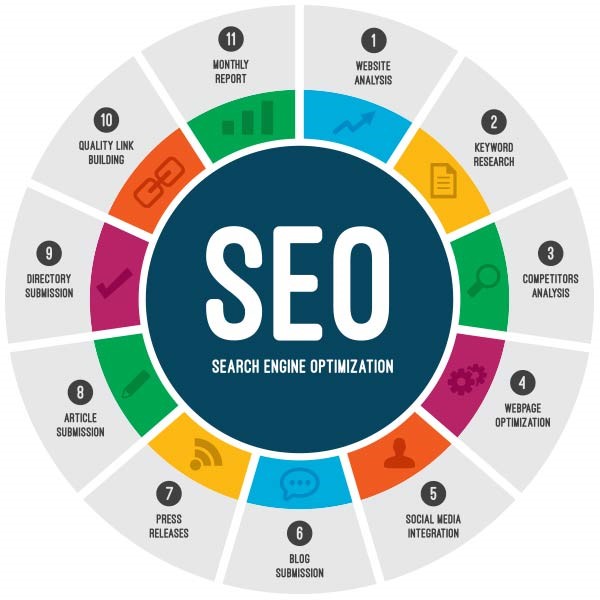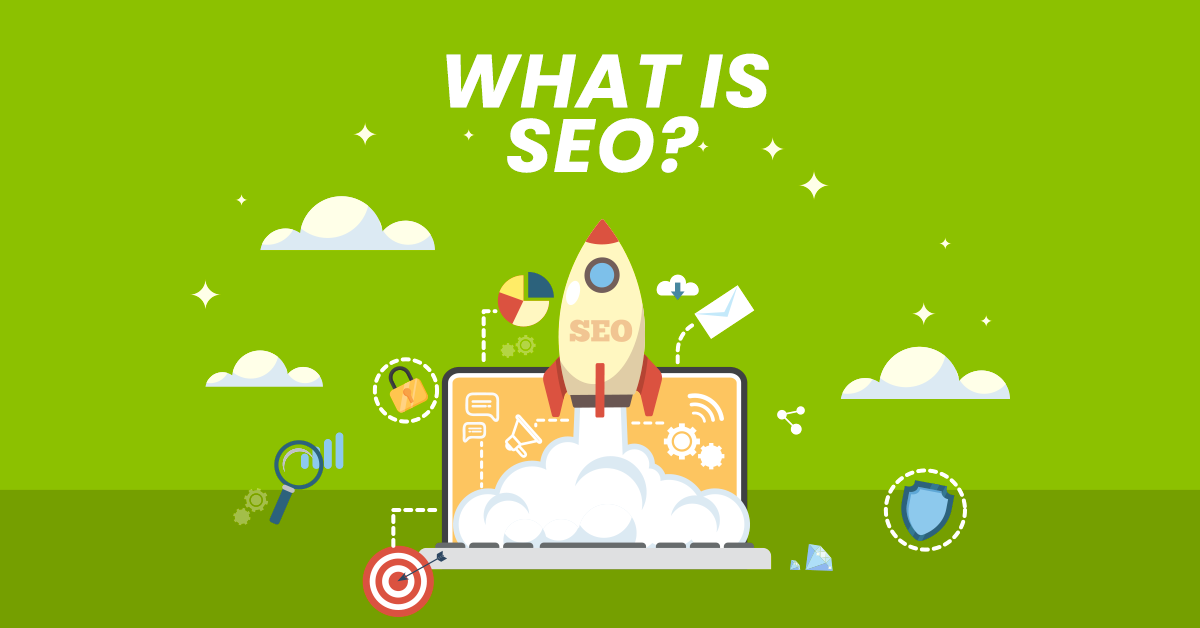What is SEO? What does SEO stand for?
SEO stands for Search Engine Optimization. But exactly…what is SEO? It is the practice of increasing traffic to websites and raising their visibility on search engine results by organic (non-paid) means. SEO encompasses quite a number of factors, some technical, some creative.
The principle function of SEO is to ensure that websites are constructed to work with search engine algorithms, and not against them. Properly optimized websites are known to do very well, whereas websites that are not optimized are known to languish at the bottom of the search pool.
Of course, SEO also entails constructing websites to be user-friendly, as it is well known that sites which are not user-friendly, in that their content is poor or they are not mobile-friendly, will lose traffic, even if they happen to do well in search engine rankings.

How necessary is SEO?
Very necessary! While search engines are not the only way to drive traffic to your website, as social media platforms such as Facebook, Instagram, and Twitter are great conduits for web users, they are still the primary information highway for most internet users.
Search engines are the directories of the web. They provide targeted traffic. Web users looking for a specific product or service find exactly that when they use search engines. Likewise, they also find products or businesses which are related to their search but are a bit more tangential. SEO focuses on this information landscape, and, specifically, they help website owners situate themselves for success.
Consider this real life example: Which receives more traffic? The gas station situated right off the highway, or the one a few miles into town?
Obviously, the one which is most visible and accessible is going to have more success. Your website may host some fantastic material, it may offer awesome products or services, but if it can’t be accessed, what’s the point? This is the problem SEO resolves.
What is SEO and what are the core components that matter?

Getting Indexed: Search Engines like Google, Yahoo, or Bing use something called crawlers to generate their search results. Crawlers are internet bots, or automated scripts, which browse the web in a methodical manner. They pull information like URLs, web page content, related links, meta tag information, and other relevant information. Drawing on crawlers, search engines are able to populate their indexes. If a website is built poorly, crawlers will leave with a smaller haul of information, thereby placing the website far down on the search engine index. SEO firms like Think Big Marketing focus on designing every bit of a website’s information so that it ranks well on search engine indexes.
Preventing Crawling: Conversely, there are instances in which information should be withheld from crawling. Information such as login specific pages, shopping carts, and user specific content, such as internal search results, should be made inaccessible to crawling. Websites that do not adhere to this practice will be hurt in return, as this information is considered spam to search engines.
Increasing Visibility: There are many methods to increase a website’s visibility on search engines. First and foremost is locating high value keywords. These are words which web users input into search engines to populate results of a specific category. Choosing the best keywords, ones which web users input often and which pertain to a broad amount of categories, and riddling webpage content with them is a great way for a site to rise in search engine results. Keywords should be placed not only in on-page content, but the meta data, title tags, and meta descriptions as well.

There are also linking techniques which can increase visibility. Cross-linking, which is linking one page to another on the same website, is one effective method. External linking, meaning placing links to one’s website on other, third party websites, is another organic way of increasing visibility.
Additionally, it is well known that search engines prefer websites which are mobile-friendly. As a majority of web searches now occur by smartphone, it is paramount that websites are built to cater to the developing audience.
Black Hat SEO vs White Hat SEO

SEO practices can be broken up into two categories. White Hat SEO encompasses the sort of optimization practices which are favorable to search engines companies, whereas Black Hat SEO employs techniques which are… not so favorable. A website which employs White Hat techniques will generally have a longer web half-life than their Black Hat counterparts.
White Hat SEO techniques are ones we have already described. They work with search engines to raise the ranking and visibility of a webpage. Black Hat SEO, on the other hand, attempts to undercut, or deceive, search engine algorithms. Techniques web owners using Black Hat SEO may employ include the use of hidden text, whether that means hiding text by coloring it in a certain way, or placing it just off screen, as well as cloaking, which means a different webpage will pop up depending on whether it’s accessed by a bot or human. While these techniques may work in the short-term for certain webpages, if discovered by search engine companies, they can result in heavy penalties, such as reduced ranking or bans altogether.
Generally speaking, if you’re asking yourself “What is SEO?” the answer should not include anything reminiscent of Black Hat practices. What does SEO stand for if not an honest, provable method toward helping a website succeed?
Can SEO be performed on my own, or is an expert required?
While SEO techniques can be learned by anyone, it may be advisable to seek the help of an expert, especially if you are looking to seriously take on the competition your website faces. Even if you are a great learner and are able to properly employ 60-70% of SEO techniques, it may not be enough. Becoming an expert in a field like SEO can take a long time. Your website, especially if it’s good, should not be left to wait. Strike the iron while it’s hot and bring the potential of your website to the fore by hiring an expert.
Just think: If you came to this page asking questions like, “What is SEO?” and “What does SEO stand for?”, now you should know enough to realize it’s benefits and start using it on your website. It can make all the difference in your traffic.


